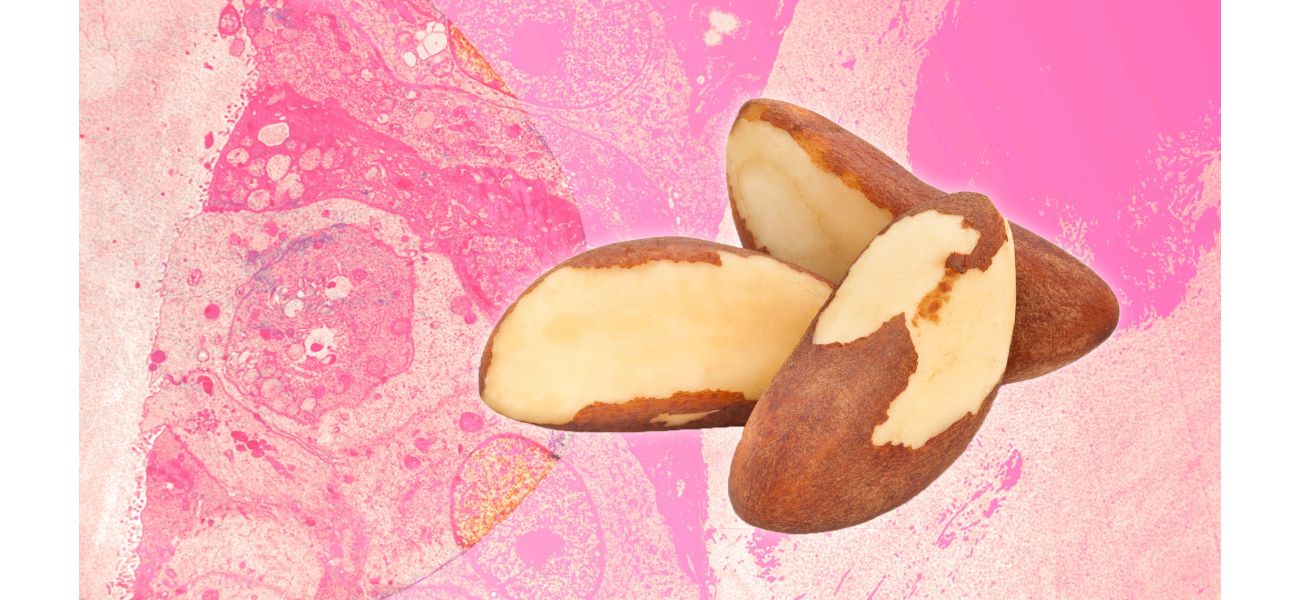Nut mineral may save breast cancer patients in Brazil
New treatments could potentially halt the spread of the disease after a promising discovery.
October 21st 2024.

Is it possible that a mineral found in brazil nuts could hold the key to fighting a rare form of cancer? According to researchers, this may indeed be the case. Triple negative breast cancer is known for being difficult to treat, but with proper therapy and surgery, it can often be managed. However, if it spreads to other parts of the body, it becomes inoperable and much harder to control.
A recent study, funded by Cancer Research UK, suggests that limiting the antioxidant effects of selenium could be the secret to preventing the spread of this type of cancer. Selenium is a popular ingredient in multivitamin supplements and can also be found in everyday foods such as meat, mushrooms, and cereals. While it was previously believed that selenium could help fight against cancer cells, this research has found that the opposite may be true.
In fact, the study showed that cancer cells actually rely on selenium for survival, especially when they are not clustered together in dense cell clusters. When these cells are spread out, they produce a type of fat molecule that contains oleic acid, which protects them from a form of cell death called ferroptosis, brought on by selenium starvation.
This discovery is significant because it offers a potential new avenue for treatment. Lisa Bancroft, who discovered she had a genetic fault that put her at risk for this rare cancer, understands the importance of this research. She underwent preventative surgery to remove both of her breasts and is now cancer-free at the age of 32. She is hopeful that this research will lead to more treatment options for those with triple negative breast cancer.
The research, published in EMBO Molecular Medicine and led by Dr. Saverio Tardito of the Cancer Research UK Scotland Institute in Glasgow and the Centre for Cancer Research at the Medical University of Vienna, found that by interfering with the metabolism of selenium in these sparse cancer cells, they were able to kill them. This discovery has raised hopes for the development of new treatments that could prevent the spread of this deadly disease.
While it is not feasible to remove selenium from our diet entirely, finding a way to interfere with its uptake by triple negative breast cancer cells could potentially prevent the cancer from spreading to other parts of the body. This is crucial because it is often the spread of the cancer that proves fatal, rather than the cancer itself.
About 56,800 people are diagnosed with breast cancer in the UK each year, with an estimated 15% of those cases being triple negative breast cancer. This type of cancer can be caused by a fault in the BRCA genes, which increases the chances of developing certain types of cancer, including breast cancer.
Dr. Sam Godfrey, Cancer Research UK Science Engagement Lead, recognizes the significance of this research and its potential to improve outcomes for patients with triple negative breast cancer. He emphasizes the importance of finding new ways to prevent the spread of this disease, as it can be more challenging to treat than other types of cancer.
Lisa Bancroft's story is a testament to the power of medical research. Her father and aunt both passed away from cancer, and her aunt specifically from triple negative breast cancer. With a six-year-old daughter to think about, Lisa is hopeful that by the time her daughter is old enough, medical science will have made even more significant strides in the fight against cancer.
In the end, it is the hope of individuals like Lisa and the dedication of researchers like Dr. Tardito that will continue to drive progress in the fight against cancer. With each new discovery, we come closer to a world where this disease is no longer a death sentence, and where individuals like Lisa and her family can live without fear.
A recent study, funded by Cancer Research UK, suggests that limiting the antioxidant effects of selenium could be the secret to preventing the spread of this type of cancer. Selenium is a popular ingredient in multivitamin supplements and can also be found in everyday foods such as meat, mushrooms, and cereals. While it was previously believed that selenium could help fight against cancer cells, this research has found that the opposite may be true.
In fact, the study showed that cancer cells actually rely on selenium for survival, especially when they are not clustered together in dense cell clusters. When these cells are spread out, they produce a type of fat molecule that contains oleic acid, which protects them from a form of cell death called ferroptosis, brought on by selenium starvation.
This discovery is significant because it offers a potential new avenue for treatment. Lisa Bancroft, who discovered she had a genetic fault that put her at risk for this rare cancer, understands the importance of this research. She underwent preventative surgery to remove both of her breasts and is now cancer-free at the age of 32. She is hopeful that this research will lead to more treatment options for those with triple negative breast cancer.
The research, published in EMBO Molecular Medicine and led by Dr. Saverio Tardito of the Cancer Research UK Scotland Institute in Glasgow and the Centre for Cancer Research at the Medical University of Vienna, found that by interfering with the metabolism of selenium in these sparse cancer cells, they were able to kill them. This discovery has raised hopes for the development of new treatments that could prevent the spread of this deadly disease.
While it is not feasible to remove selenium from our diet entirely, finding a way to interfere with its uptake by triple negative breast cancer cells could potentially prevent the cancer from spreading to other parts of the body. This is crucial because it is often the spread of the cancer that proves fatal, rather than the cancer itself.
About 56,800 people are diagnosed with breast cancer in the UK each year, with an estimated 15% of those cases being triple negative breast cancer. This type of cancer can be caused by a fault in the BRCA genes, which increases the chances of developing certain types of cancer, including breast cancer.
Dr. Sam Godfrey, Cancer Research UK Science Engagement Lead, recognizes the significance of this research and its potential to improve outcomes for patients with triple negative breast cancer. He emphasizes the importance of finding new ways to prevent the spread of this disease, as it can be more challenging to treat than other types of cancer.
Lisa Bancroft's story is a testament to the power of medical research. Her father and aunt both passed away from cancer, and her aunt specifically from triple negative breast cancer. With a six-year-old daughter to think about, Lisa is hopeful that by the time her daughter is old enough, medical science will have made even more significant strides in the fight against cancer.
In the end, it is the hope of individuals like Lisa and the dedication of researchers like Dr. Tardito that will continue to drive progress in the fight against cancer. With each new discovery, we come closer to a world where this disease is no longer a death sentence, and where individuals like Lisa and her family can live without fear.
[This article has been trending online recently and has been generated with AI. Your feed is customized.]
[Generative AI is experimental.]
0
0
Submit Comment





